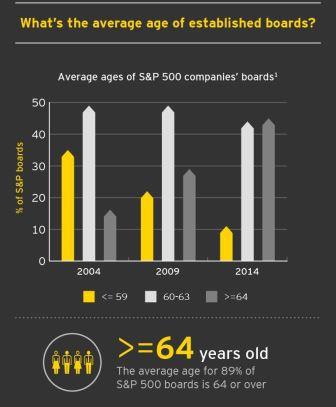In this age of digital disruption, how significant is age in effective business leadership?
In the present times when a majority of the workforce at most large organisations comprises millennials, the dilemma whether ‘old is gold’ or is it time for the ‘young and bold’ is not unusual. Look around and it is mostly the millennials, their dynamic demeanour and the digital revolution that’s shaping workplace cultures. In this age of digital disruption, does age make a difference in defining effective business leadership?
One of EY’s blogs, ‘Is your board too old to innovate?’ mentions that most of the CEOs of unicorn technology startups — organisations valued at over $1 billion — seem to be in their thirties or younger. Looking at most successful startups and the age of their founders, one can easily relate the age factor with the ability to innovate. Evan Spiegel founded Snapchat in 2011 at the age of 21; Brian Chesky established Airbnb in 2008, at the age of 26; Elon Musk, at 30, gave SpaceX to the world in 2002; and Travis Kalanick started Uber at the age of 32, in 2009.

Isn’t this a clear sign that the human mind is most innovative around its 20s and 30s? Well, the blog also mentions that 48 years is the average age of Nobel Prize winning work for physics. On the other hand, the average age of the boards of S&P 500 companies is over 60.
Interestingly, 89 per cent of these S&P 500 companies’ boards are over 64 years old, which means that although the young and smart entrepreneurs may be gaining a lot of attention for their high-value startups, there are still many experienced business advisors behind successful and smoothly running businesses — be it board members, investors, advisors or mentors. The blog states, “It’s important to remember that the majority of startups fail, often due to their founders’ lack of business experience.”
David Storey, global talent leader, people advisory services at EY, says, “Surviving in an age of constant disruption requires getting your staffing balance right — combining the digital skills and knowledge needed to innovate, with the business sense and experience needed to survive in the long term. Don’t focus on age but on the different experiences and perspectives that people of diverse backgrounds can bring.”
Storey’s words also imply that innovation alone is not enough to take businesses to great heights; even experience matters. That is why, ‘a highly diverse boardroom and leadership team with varied skills and experiences’ is what can drive success from innovation. While organisations must learn to maintain this balance in the diversity of age and experience, well-experienced leaders of this digitised corporate era need to evolve such that they encourage innovation and uniqueness to enhance the business potential of the young and bold.
Value our content... contribute towards our growth. Even a small contribution a month would be of great help for us.
Since eight years, we have been serving the industry through daily news and stories. Our content is free for all and we plan to keep it that way.
Support HRKatha. Pay Here (All it takes is a minute)





































Yes the young generation is innovative and their skills required where innovation is needed.The Industry business which is mainly based on innovation need to be tilted towards younger leadership with experience personnel to share their experiences.